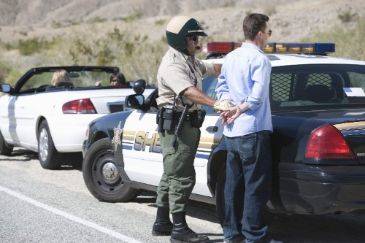Charged with a DUI or DWI? Check out this article to learn the types of DWI penalties you might be facing. Call for a free consultation.
 DWI Penalties
DWI Penalties
In Texas, the penalties for a DWI conviction depend on a number of factors. Is it a first-time DWI? Is it a second-time DWI, or a third or more? What is the breath or blood test result that got you in trouble? If it’s a blood or breath test result under a .15 and it’s a first-time DWI, the range of punishment is up to six months in jail and up to a $2,000 fine.
However, I’ve never had anybody go to jail on a DWI-first with under a .15, and that’s with 30 years of defending DWIs. On a DWI-second and third, the penalties ratchet up pretty dramatically. On a second, it’s up to one year in jail, and it’s up to a $4,000 fine. On a felony DWI, depending on the number of prior felonies, and if someone’s been to the penitentiary, all those play a role in determining the range of punishment. Generally, on a felony DWI, which is three or more DWIs, the range of punishment is up to 10 years in the penitentiary.
Second Offense DWI Penalties
If you’re charged with a second DWI in Texas, there are a couple things that happen. The range of punishment is greater because instead of a Class B misdemeanor, it becomes a Class A misdemeanor. With a Class A misdemeanor, the fines are up to $4,000, and if you’re prior DWI was within five years, then you’ll lose your license. There’s a period where you can’t even get an occupational license. That’s really difficult for a lot of people because you’ll have a period of 90 days when you can’t even drive a car, and if you get caught driving a car, it’s another offense. Of course, that is dependent upon having the DPS hearing and losing, so it’s important on a DWI-second to request a DPS hearing within 15 days because you could have a period in which you can’t even get an occupational license.
Some courts want to give somebody some days in jail as a condition of probation on the DWI-second. I’ve been able to avoid that with prior clients, and I think in most cases you can avoid it. There’s a lot of prosecutors and a lot of DAs that feel that somebody with a prior DWI and gets a second, that they need to spend a weekend in jail, but if you mount a defense, and so forth, they will drop that requirement.
Third Offense DWI Penalties
If you’re charged with a third DWI in Texas, the penalties are potentially much greater. You can serve up to 10 years in prison. You can have a $10,000 fine. Even if you’re given probation on a felony DWI, the judge can give you 180 days in jail as a condition of getting the probation. On a felony DWI, it’s real important that your lawyer make sure he collects all of the evidence, all of the breath tests, and collects the prior judgments, because very often, what they’re using to enhance is a prior judgment that they can’t prove is you.
It’s their obligation to prove the prior judgment is yours, but very often if a judgment is more than 10 years old, they can still use it, but very often they can’t prove it’s you because they don’t have fingerprints; all they have is a name. In those circumstances, sometimes you can get them to drop one of your priors so that your case now becomes a misdemeanor. That’s one of the first things that we need to do on a felony DWI, is see, if in fact, it should be a felony DWI, because you don’t want to be looking at up to 10 years in prison. If we can get it dropped to a misdemeanor, then you can still fight the case, and if you’re convicted, probably just get probation. It’s a much better position to be in.
Multiple Offense DWI Penalties
If it’s your second DWI, then it is a Class A misdemeanor and it’s up to one year in jail. In most cases, on a second DWI, the worst case is that you’ll end up with being placed on probation. If you have two or more prior DWIs, then your third is a felony; there’s a high risk of going to prison. What I usually recommend to people when they come in and they have multiple prior DWIs, is that they need to be proactive. They need to absolutely quit drinking. They need to start going to AA. If they have the money, the need to go to treatment, in-patient if possible.
A judge is going to look at that person and think they’re high-risk to the community, they’re high-risk to the judge’s position, they’re high-risk to the DA, and so you need to do what you can to make yourself look low-risk. If we do all the things we need to do, if it ends up that you have to work out some sort of plea bargain on a felony DWI, in most cases, you can end up being placed on probation and avoiding prison.
Were you or a loved one arrested for drunk driving and have questions about the types of DWI penalties? Contact a San Antonio DWI attorney at Rush & Gransee today for a consultation on your case and all of your potential defenses. Let our experience work for you.
Attorney Kurt W. Gransee has achieved the highest rating of superb on Avvo.